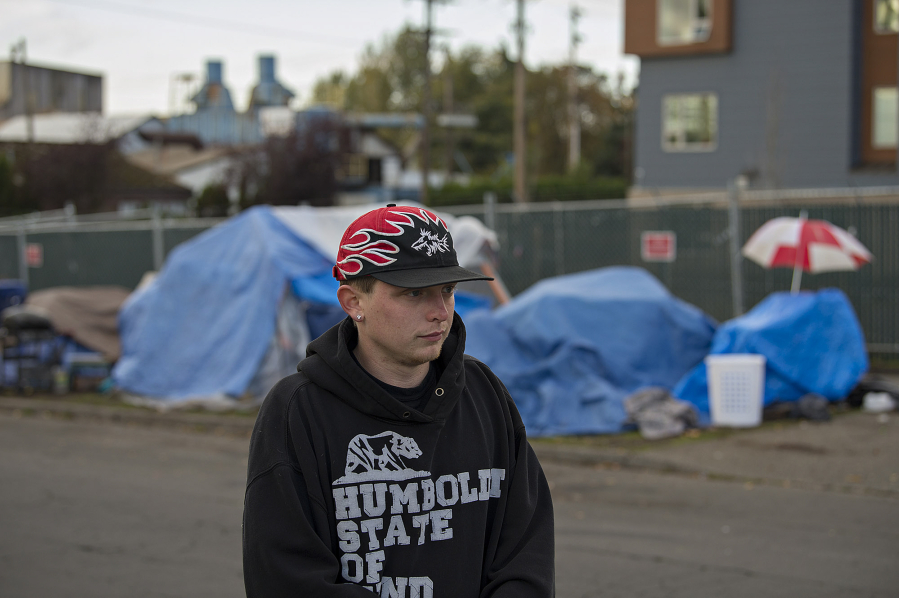Michael McInerney, 21, left his Colorado home Sept. 6 and arrived in Vancouver. For the last five weeks, he’s been living on the streets, camping near Share House on West 13th Street.
He’s already been approached by Vancouver police while hanging around the area, but has yet to be cited for unlawful camping. When McInerney heard the city is reconsidering its ordinance, including a proposal for a diversion program, he said simply, “Hell yeah.”
“I think it would be good instead of just marking up a bunch of citations on somebody and they just go to jail, finding another alternative,” he added. “Not everybody is a bad person.”
Public camping is illegal between 6:30 a.m. and 9:30 p.m. in Vancouver. Overnight camping in public places, not including parks, was implemented in 2015.
The Vancouver City Council discussed some options during a workshop Monday evening. Considerations include reducing violations from criminal to civil, implementing a three-strike program, decriminalizing camping in specified areas and an Unlawful Camping Diversion Program. The council clearly favored the diversion program and instructed staff to flush out its proposal and return at a later meeting to discuss implementation.
McInerney said he thinks — and nearby campers agree — police should focus on more serious crimes rather than citing the homeless population.
“People are just trying to set up for the night and stay out of the rain,” he said. “Giving out tickets like that is rude.”
Currently, it’s at the officer’s discretion if a camper is cited. More often than not, Vancouver police Cmdr. Dave King said, officers opt to give a warning. Police routinely visit camps to clean up and typically only cite when the resident declines to clean up their space that day.
“I’m optimistic there’s something really good here,” said Councilor Jack Burkman.
Under the proposed diversion program, cited residents would be offered an opportunity to connect with service providers in lieu of a fine and possible jail time. Conditions of enrollment in the program might include completion of a housing assessment or entering a drug or mental health treatment program. If the resident is successful in the program, the case would be dismissed.
Despite hesitant optimism, the council and city staff acknowledged the homeless issue is complex and a diversion program is only one piece of the puzzle.
“I don’t see how this stops unless we get someone inside and dry,” said Councilor Ty Stober.
An unexpected issue is a rotating camping population. King said police went out a month ago and noted about 80 percent of people contacted were new.
“It takes 79 touches before somebody develops the ability or the trust to (move into housing),” he said. “If we use this as a homeless court it puts people into a situation where we’re trying to get them those touches. And that person’s no longer out there.”
Still, the city is desperate for a solution. The diversion program might be the answer.
“What we’re asking people to do is ultimately engage in treatment and services that are reducing their risk factors, probably getting them further away from emergency placement housing but closer to propping themselves up and being able to provide themselves with housing,” said Jonathan Young, assistant city attorney.
For McInerney, that’s all he would ask for.




